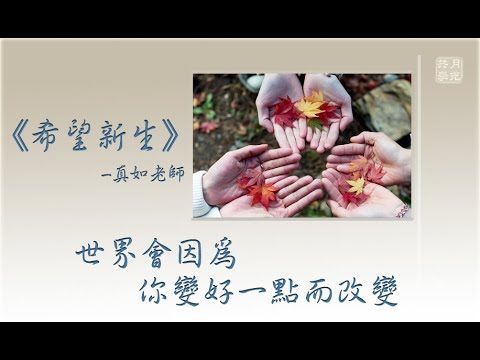Many times, we always think that happiness or unhappiness in life has a lot to do with the external environment. This TED Talk from a fellow Taiwanese entrepreneur bring home the point that, to change reality, you only need to change your own perceptions.
I hear echoes of Master Ri-Chang’s 观功念恩 (Observing Merits and Appreciate Kindness or OMAK) in the talk. ![]()
Optimistic thinking or Positive Reframing is a resiliency skill taught in Psychology that helps people to overcome adversity and reach life goals. Remember the old metaphor “Is the glass is half-full or half-empty?” This is a perfect example of how the same event can be looked at in a positive or negative light. Positive reframing means trying to reconsider things in a positive light, and it is a powerful way to transform your thinking.
Here’s an example of positive reframing that I really love. A woman was new to a large company and was trying very hard to make a good impression on her coworkers. One day, responding to a widely sent email, she accidentally attached a personal document about her financial difficulties instead of the intended form. Realising the mistake to her chagrin, she quickly sent out a new email with the message “…Well at least it wasn’t a love letter ;)” Her coworkers got a kick out of her response, and an event that could have caused her to look unprofessional actually improved her coworkers’ opinions of her.
Positive reframing does not change the situation, but it can certainly reduce damage and put things into a healthier perspective. Therapists use it frequently as a technique to restructure cognitions. When done skillfully with humour, it can be a wonderful tension defuser. Try it and see how a well-placed positive reframe can make a difference in a difficult situation.
善人是师 恶人是资
Venerable Ru Jun shares this positive perspective in his discourse:
(from the 7min mark to around 7:50min mark)
Sharing Master Ri-Chang’s teaching on this topic too:
What I understand from the phrase: 善人是师 恶人是资
- when we meet a positive influence, he becomes an example I can learn from
- when we encounter a bad influence, he becomes a reminder of what the mistakes I could make
- we can also use the bad influence as a subject with which to better train in our practice - practising compassion etc.
